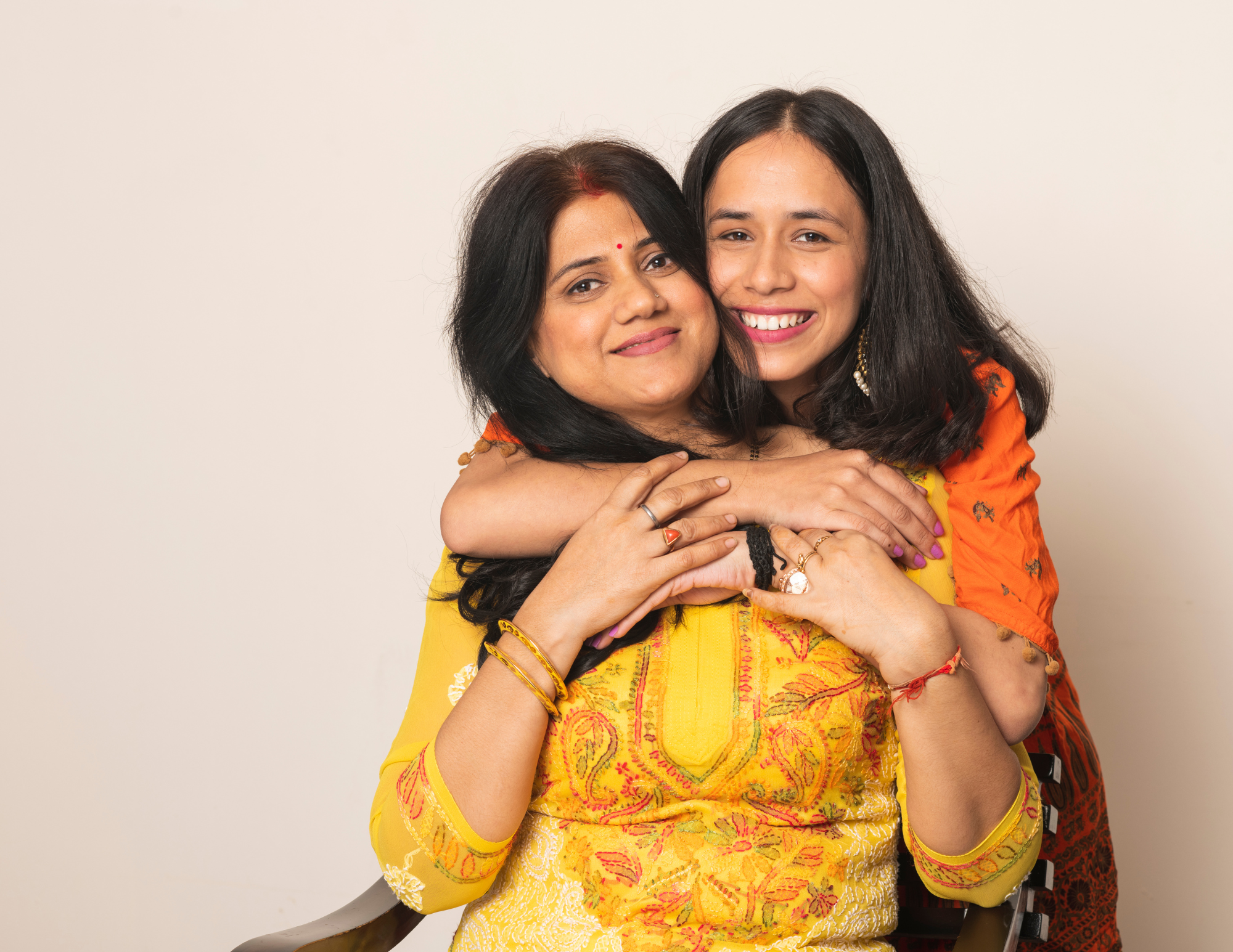Why Do I, a Full-Grown Adult, Care What My Mom* Thinks of Me?
Why Do I, a Full-Grown Adult, Care What My Mom* Thinks of Me?
Have you ever found yourself standing in front of your mom* (*or dad, grandma, or whoever your primary caregiver was) and suddenly felt like a little kid again? Have you ever felt 3 feet tall, even though you're now 5'9"? Do you feel totally fine being criticized by someone else—but feel completely dysregulated by the slightest air of disappointment from your mom?
Well, you're not alone.
Why does this happen?
When we’re born, we literally don’t know we’re separate from our moms. In fact, babies don’t realize they are their own person until around 6–7 months of age. https://www.babycenter.com/baby/baby-development/developmental-milestone-separation-and-independence_6577 — According to object relations theory, the way our parents interact with us shapes how we view ourselves. https://www.verywellmind.com/what-is-object-relations-theory-2671995 — For example, if a parent isn’t emotionally attuned, we may perceive that as something being wrong with us. When we’re young, we can’t help but take things personally—it’s developmental! But when this pattern continues into adolescence and adulthood, tying our self-worth to our mom’s reactions can turn sour quickly.
A Caveat
If you find yourself extra sensitive to your parents’ opinions as an adult, it doesn’t necessarily mean you had awful parents. Part of it is just human nature—we all want to be accepted. That need never fully goes away, even if we had the most emotionally attuned parents in the world.
That said, if your mom was frequently angry, emotionally unavailable, or inconsistent in her reactions, you might experience heightened distress in response to her opinions. I love what Virginia Satir says about parents: “Parents do the best they can at any given time.” https://www.tomkelleylmft.com/tk-blog/what-i-am-reading-the-satir-model-family-therapy-and-beyond — I really believe that’s true. That doesn’t mean you have to excuse everything they did, but in my experience, very few parents are intentionally malicious.
Consider generational parenting. Many once-common phrases like “children are to be seen and not heard” or “I brought you into this world and I can take you out of it” were normalized. But these beliefs can actually be harmful to a child’s development. A lot of parents simply didn’t know better.
So What Now?
If you often feel insecure or highly sensitive around your parental figures, it might be time for some self-work. That could include exploring attachment theory and working toward a more secure attachment style. It might mean grieving the parent you wish you had, while learning to accept the one you do have. It could also involve getting unmet needs fulfilled in other relationships.
This process looks different for everyone. If you need support with it, I strongly recommend reaching out to a qualified therapist who specializes in attachment work.
A Word on Family Cut-Offs
In general, I don’t see cutting off family as the first or best solution. I believe very little in life is black and white. Our parents are human: they’ve hurt us, and they love us. Of course, you should always protect yourself—but if it’s safe to do so, consider giving them a chance to take accountability. It may not work out—but at least you’ll know you did what you could.
About The Author
Jorden Groenink, MS, LMFT, APCC a lisenced marriage and family therapist (AMFT136162) and an Associate Professional Clinical Counselor (APCC12906), supervised by Jeremy Mast, MS, MDiv, LMFT, CSAT, CPTT (CA90961). She has been trained in Experiential Therapy and loves working with couples and individuals who want to experience a more fulfilling life. Jorden wholeheartedly believes that every person is worthy of love and relationship. When not working with clients or listening to audiobooks, Jorden enjoys spending time with her family (husband, dog, & cat) and doing DIY projects around her house.


